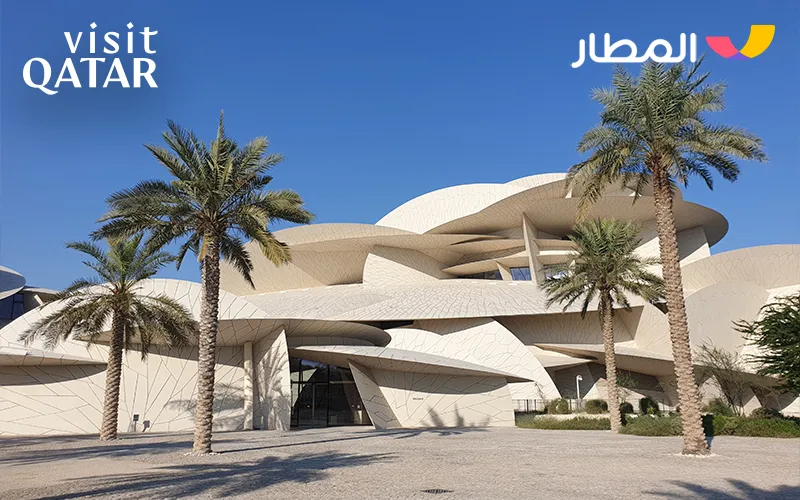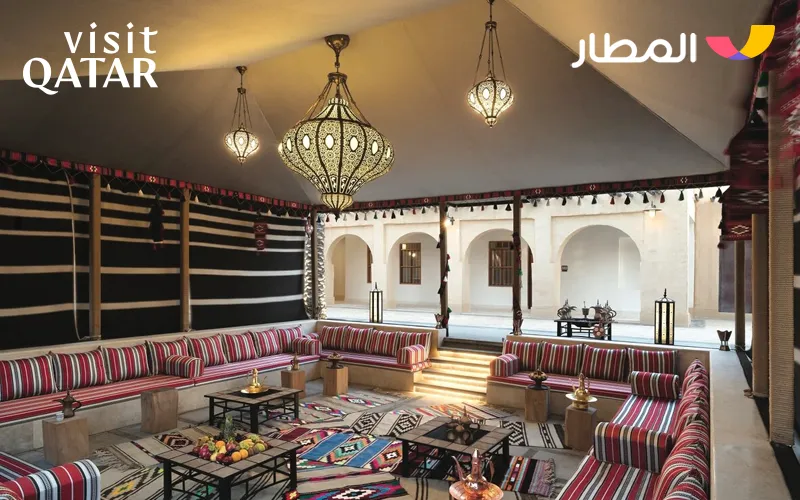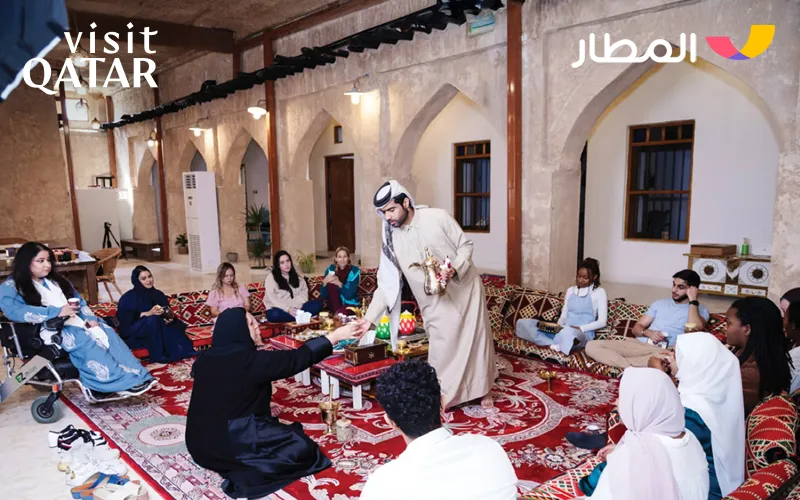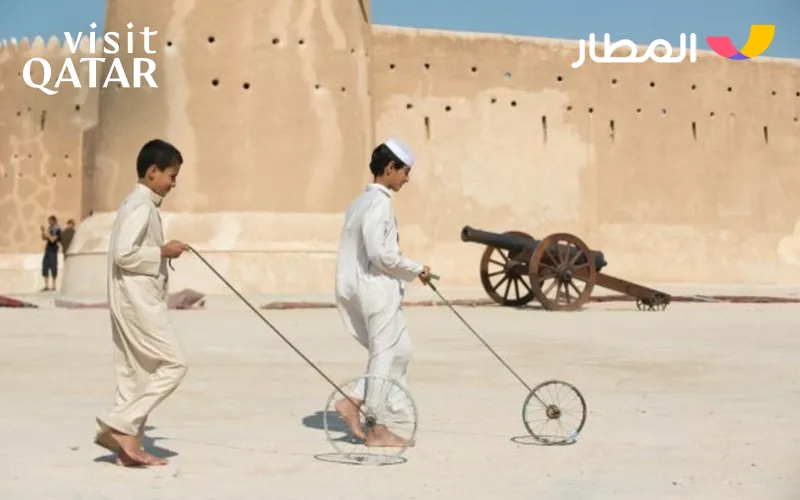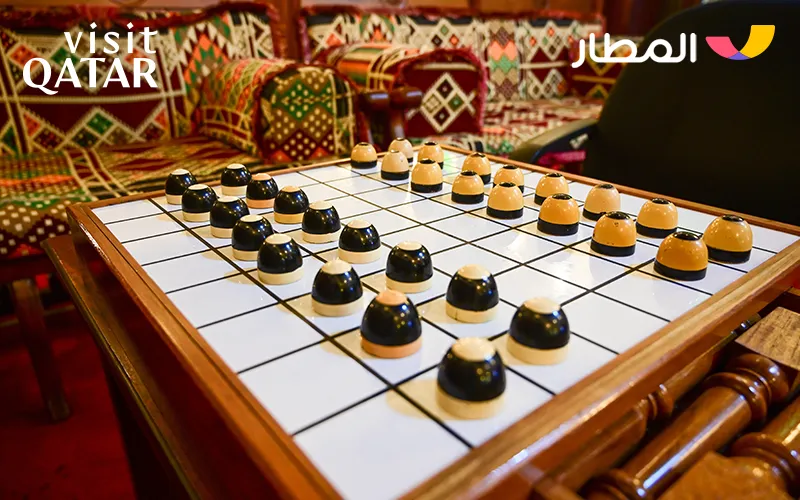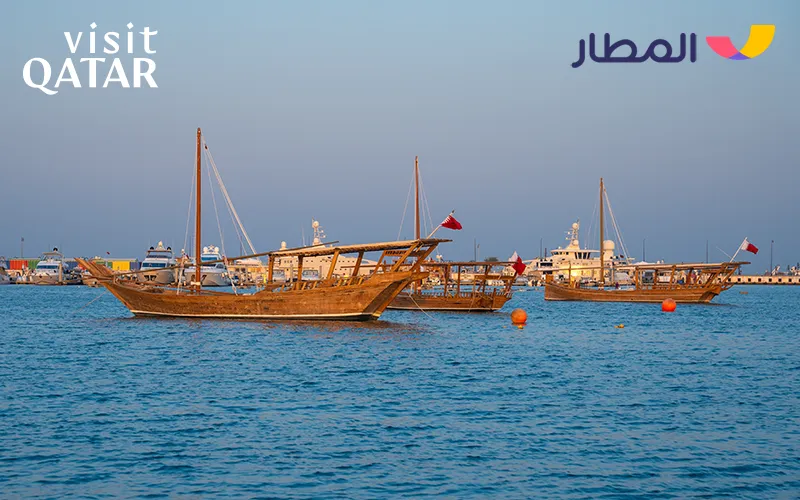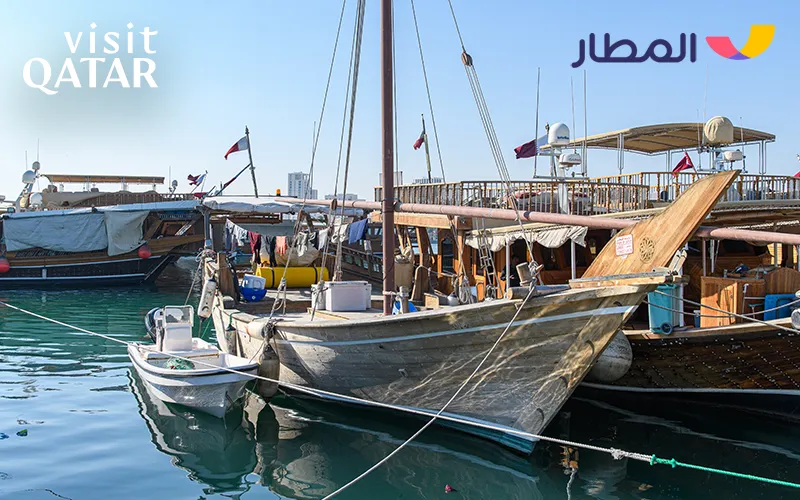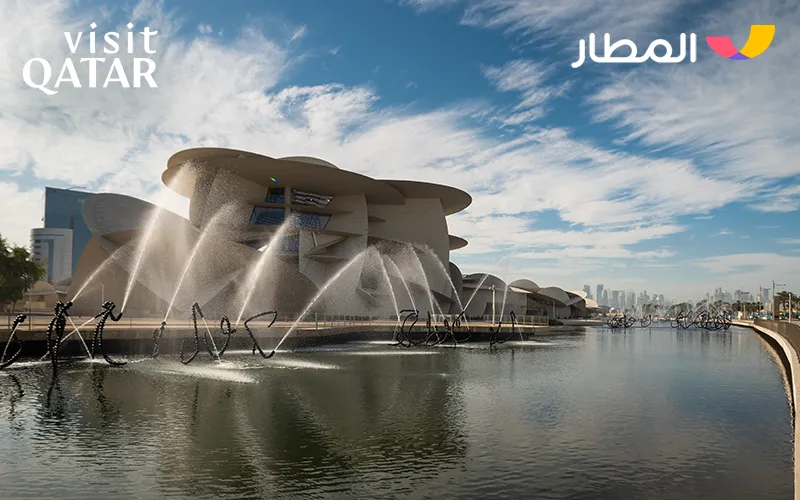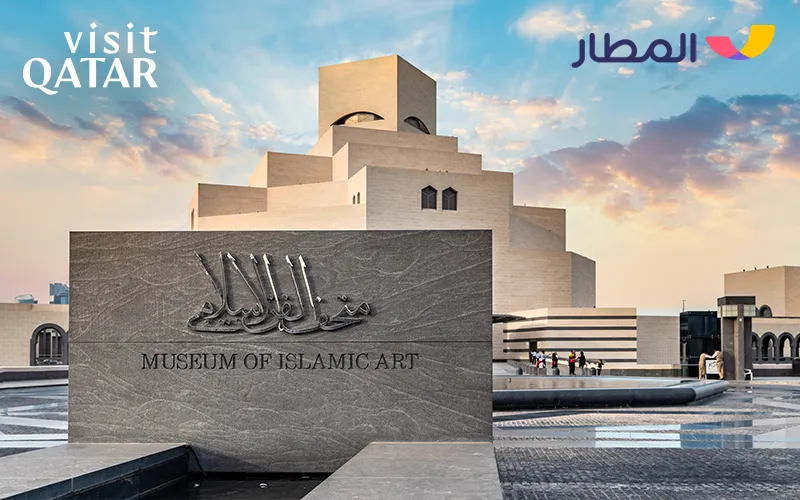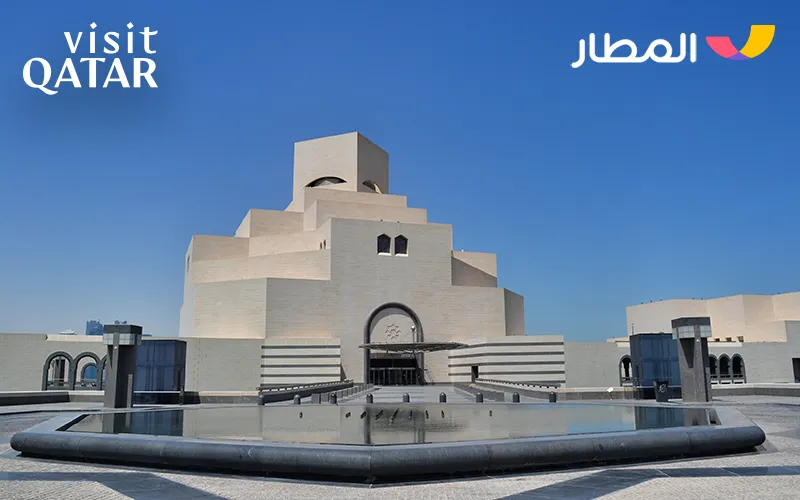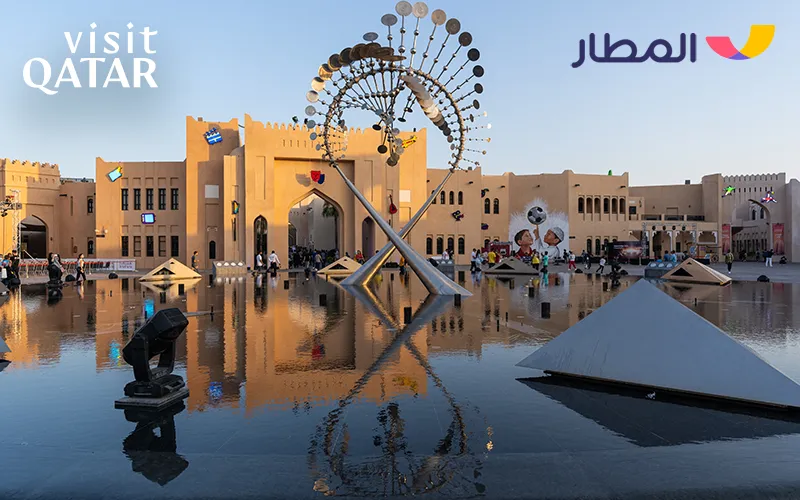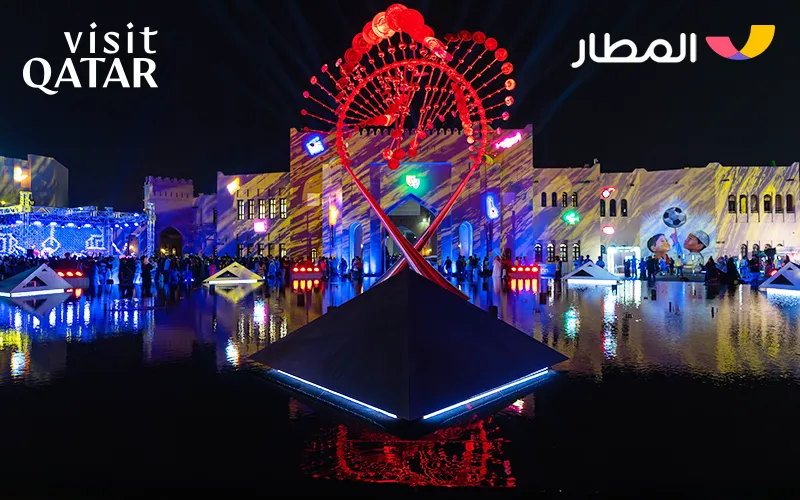On Qatari soil, the past and the present meet in an exceptional scene; despite the modernity that this Gulf country is witnessing in various fields, its roots remain deeply embedded in daily life and its modern landmarks. We will take you on a quick tour to explore how the country’s rich past contributed to shaping its prosperous present, and how Qatar culture and traditions are reflected in everything it offers the world today.
Qatar: A Deep Past and a Flourishing Present
Not long ago, Qatar was merely a society based on pearl diving and maritime trade, with its people living between the desert and the coast. Two main groups have shaped the Qatari cultural identity since ancient times: the Bedouin tribes that roamed the desert and the urban communities settled along the coast, who practiced pearl diving and trade.
Qataris inherited many social values and customs that are still alive today; after the discovery of oil and gas in the mid-twentieth century, Qatar underwent a fundamental economic transformation, moving from a simple community to a modern state ranked among the wealthiest in the world. Qatar crowned its development journey by hosting major global events, such as the first FIFA World Cup in the Middle East in 2022, cementing its position on the global tourism map.
Despite this rapid developmental boom, the spirit of heritage remains deeply intertwined with Qatar’s renaissance. The Qatari culture is reflected in most aspects of development and architecture, giving the modernity of this rising nation its distinctive and unique color.
Qatari Traditions: A Bridge Between Past and Present
Qatar takes pride in its rich traditions and actively works to preserve and pass them down through generations. Many old customs still form the heartbeat of modern society. Examples include:
The Qatari Majlis
To this day, it remains a central place for social gatherings, where family and friends exchange conversations, and hospitality is expressed by serving Arabic coffee and dates to guests, just as the ancestors did. Arabic coffee, flavored with cardamom and served in small handleless cups with dates, is not merely a drink but an authentic social ritual symbolizing warmth and Qatari generosity.
Traditional Sports
Alongside hospitality customs, traditional sports and entertainment flourish in Qatar, passed down from fathers to sons. Falconry, camel racing, and horseback riding on purebred Arabian horses continue to enjoy great popularity in society. Annual festivals and events are held to celebrate these traditions and attract enthusiasts from inside and outside Qatar, highlighting the richness of Qatar culture and traditions.
Ancient Handicrafts
The state also celebrates traditional arts and crafts, such as sadu (wool weaving), pottery making, engraving, and Islamic ornamentation, supporting their continuity through festivals, exhibitions, and specialized museums.
Souq Waqif: A Mirror of Qatari Heritage
Souq Waqif, in the heart of old Doha, stands as a living example of the connection between the past and the present. This traditional market, dating back over a hundred years, was restored with traditional stones to preserve its unique historical character. As you wander through its narrow alleys, you feel as though you’ve traveled back in time to an old Arab market carrying nostalgia into the present; there, you can watch elderly men playing dama (checkers) in traditional corners, smell the aroma of spices, oud, and incense wafting from the shops, and see artisans displaying handwoven carpets, wooden crafts, and silverware.
Traditional Wooden Boats
The traditional wooden boats (dhows) still sail today along the Doha Corniche, carrying visitors on sea tours that offer a magical view of the city’s modern skyline, allowing them to feel the purity and simplicity of the past through the seamless harmony between old tools and the surrounding marine nature.
Modern Achievements with a Traditional Spirit
In its modern renaissance, Qatar has been keen to ensure that its traditions are present in every accomplishment and landmark. This approach is evident in the country’s architectural and cultural landscape, where Doha embraces world-class monuments blending modernity with heritage.
The National Museum of Qatar: Linking Past and Present
The National Museum of Qatar embodies a unique architectural vision connecting the past with the present; designed by the world-renowned architect Jean Nouvel and inaugurated in 2019, it takes the shape of a giant desert rose to tell the story of Qatar’s journey from its Bedouin past to its flourishing present through a series of innovative interactive exhibits.
The Museum of Islamic Art: Driving Toward the Future
On another part of the waterfront stands the Museum of Islamic Art, an architectural masterpiece that beautifully reflects the spirit of the past. Designed by the famous architect I. M. Pei and opened in 2008, it has become a cultural symbol of Doha. The museum houses one of the richest Islamic art collections in the world, and its simple design reflects familiar Islamic geometric shapes that remind visitors of the importance of civilization in advancing the country toward the future.
Katara Cultural Village: Preserving Traditional Art in Modern Form
In addition to museums, the city flourishes with cultural and heritage centers such as Katara Cultural Village, built in traditional architectural style and hosting artistic and cultural events that reflect the diversity of Qatari and global heritage. All of this has made Doha a leading destination for cultural tourism in the region and a vibrant showcase of Qatar culture and traditions.
The World Cup and Stadiums with a Heritage Imprint
Even Qatar’s massive sports projects carried the mark of heritage in their designs. Before hosting the 2022 FIFA World Cup, Qatar built world-class stadiums inspired by local culture and environment. Among the most notable is Al Bayt Stadium in Al Khor City, designed in the form of a Bedouin tent (“Bayt Al Sha’ar”) in tribute to desert traditions and hospitality. Its exterior displays black and white stripes similar to traditional tents, while the interior features red sadu patterns on seats and walls, celebrating Bedouin heritage using advanced engineering techniques. The symbolism of its name, “Al Bayt” (The Home), reflects the concept of the welcoming Qatari home open to all. This stadium hosted the opening ceremony of the 2022 World Cup, where Qatar presented to the world a dazzling masterpiece that integrated modern architecture with elements of its culture and heritage.
In general, the World Cup was not just a sporting event but a global platform where Qatar showcased its rich culture and traditions. During the tournament, Doha revealed to the world the beauty of the country, its authenticity, and its warm hospitality, in addition to its impressive organizational capabilities for major events.
Conclusion: Traveling to Qatar Has Never Been Easier
With the availability of the installment plan feature from almatar via the Tabby platform, planning a trip to Qatar has become easier than ever before, putting the experience of discovering Qatari heritage right at your fingertips. Join those who have lived this rich experience and get ready for an unforgettable journey in a country that unites glorious history with a magnificent present, while immersing yourself in the authentic charm of Qatar culture and traditions.

